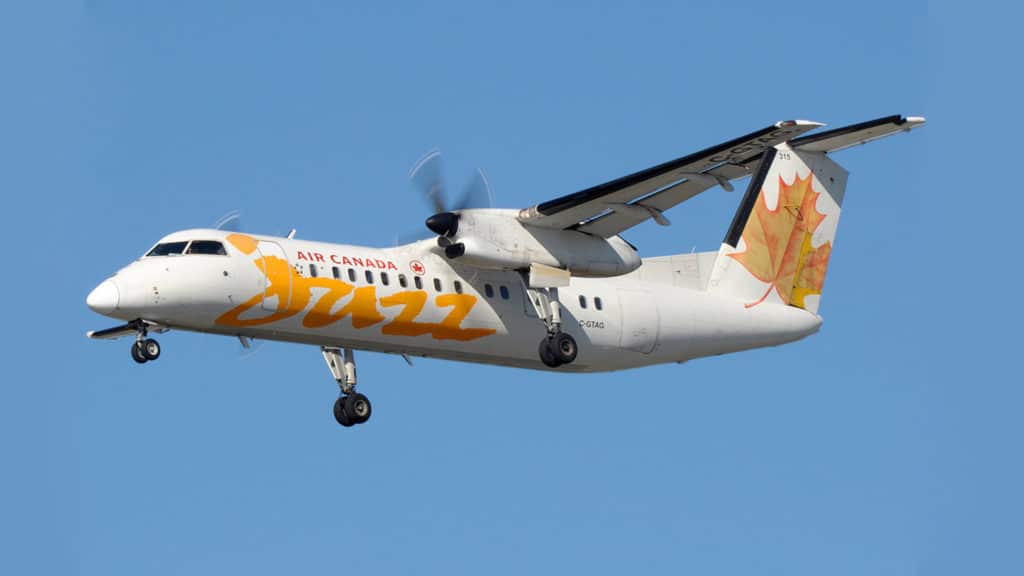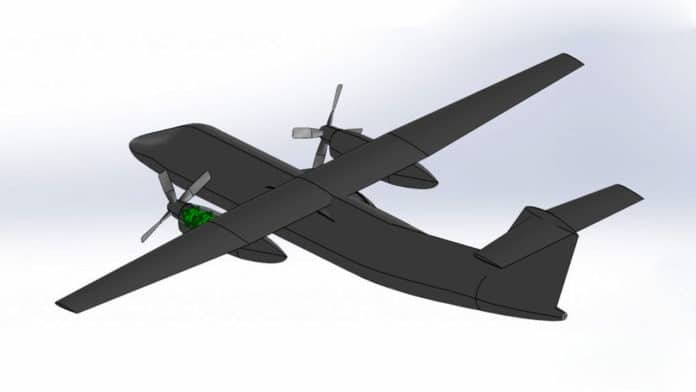Today, several companies around the world are developing passenger aircraft that use hydrogen fuel cells. It is assumed that such aircraft will cause significantly less environmental damage than modern aircraft with internal combustion engines.
Now, the American electric motor manufacturer MagniX has partnered with a Los Angeles startup called Universal Hydrogen to retrofit 40-passenger regional aircraft with carbon-free, hydrogen-fueled electric powertrains.
MagniX will provide a drive system with a power of 2-megawatt. The drive system will test it with a De Havilland Canada DHC-8, commonly known as the Dash 8 aircraft with a passenger capacity of 50 people, which will then become the world’s largest hydrogen-fueled commercial aircraft.

Universal Hydrogen plans to install up to three hydrogen fuel cell modules at the tail end of the DHC8-Q300 and placed in a compartment that will replace the last two rows of seats. Although this will reduce the capacity from 50 to 40 passengers, however, according to Universal Hydrogen, it will not negatively affect the economy of air transportation.
The two turbofan engines of the passenger aircraft are planned to be replaced with two electric motors supplied by MagniX. The power of one electric motor will be 1.6 megawatts; the power of the second is not specified. The second motor will be used as a generator while parked at the airfield. In-flight, both motors will drive the propellers. Further details about the promising conversion kit were not disclosed.
Universal Hydrogen believes that the first converted aircraft could go into commercial service by the end of 2024. In the long term, the company hopes to partner with aircraft manufacturers to provide hydrogen propulsion systems for new winged aircraft.
MagniX has repeatedly demonstrated leadership in building practical and all-electric commercial aviation solutions, including the six-seater ePlane that began flying with Harbor Air in December 2019, and the eCaravan that began flying in May 2020.
Earlier it became known that Airbus was engaged in the development of passenger aircraft, the engines of which run on hydrogen. Such aircraft, which are being developed as part of the ZEROe project, will have zero harmful emissions. The ZEROe project envisions the development of a hydrogen aircraft by 2035.
